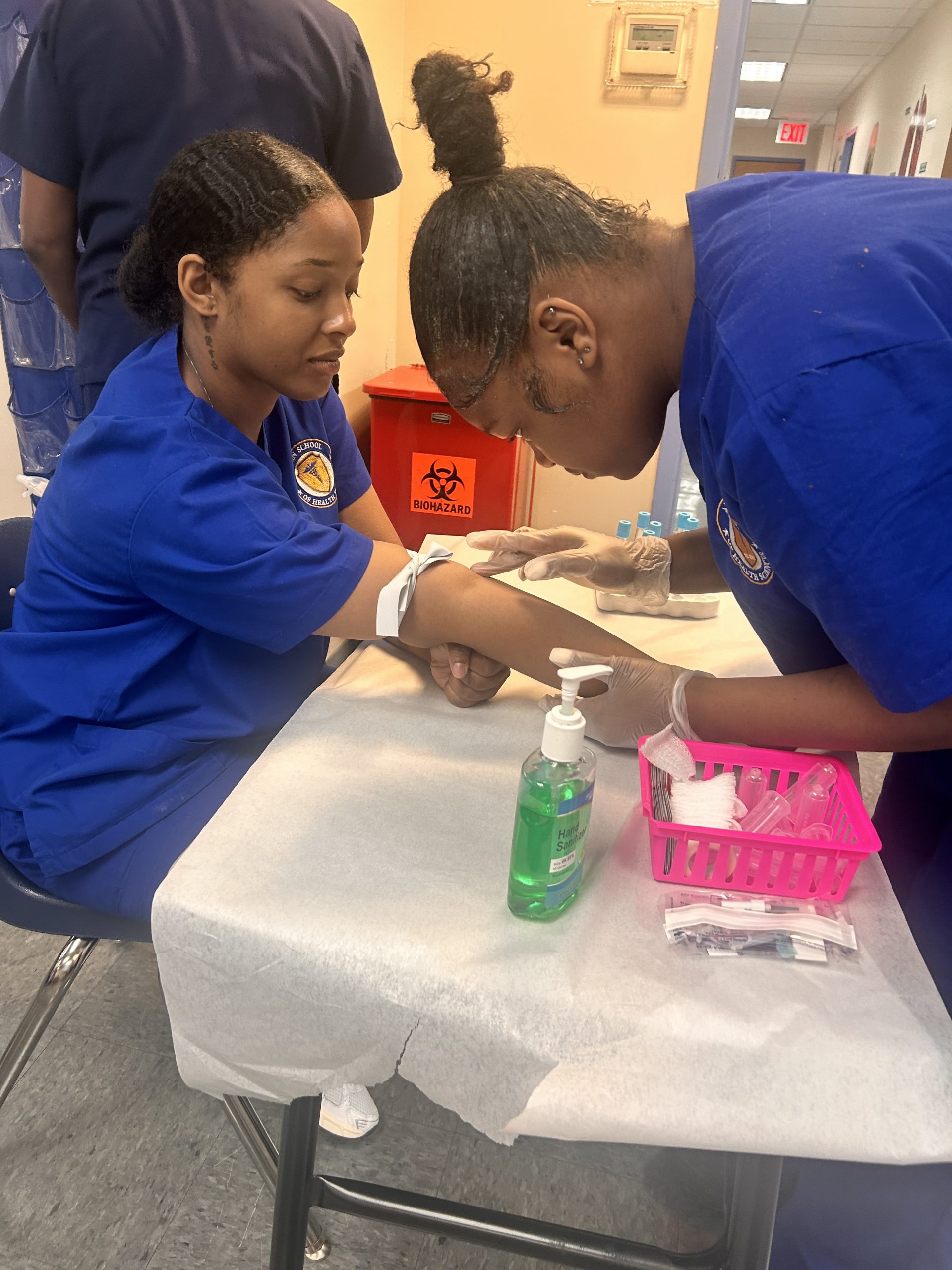
Some common courses that are typically included in a medical assistant training program or curriculum include:
Medical Terminology: This course covers the language and terminology used in healthcare settings, including anatomy, physiology, and medical procedures.
Anatomy and Physiology: This course provides an overview of the structure and function of the human body, including major organ systems and their roles in the body.
Medical Office Procedures: This course covers essential administrative tasks and procedures commonly performed in medical offices, such as appointment scheduling, billing, and medical records management.
Clinical Procedures: This course focuses on hands-on clinical skills, such as taking vital signs, performing EKGs, administering medications, and assisting with minor medical procedures.
Pharmacology: This course covers the principles of drug administration, dosage calculations, medication classifications, and potential side effects and interactions.
Medical Law and Ethics: This course explores legal and ethical issues related to healthcare, including patient confidentiality, informed consent, and professional conduct.
Medical Billing and Coding: This course introduces students to the basics of medical billing and coding practices, including insurance claims processing, reimbursement procedures, and coding systems such as ICD-10 and CPT.
Electronic Health Records (EHR) Systems: This course provides training on electronic health record systems used in healthcare settings, including how to input and retrieve patient information, document care, and ensure data security and privacy.
These are just a few examples of common courses that may be included in a medical assistant training program. The specific courses and curriculum may vary depending on the school or program, but they are designed to provide students with the knowledge and skills needed to succeed in a medical assistant career. At the Allen School of Health Sciences our program is a blended format tailored to meet the needs of the industry. We are only going to teach you what is directly related to the medical field. Students will also put their skills to use by completing 275 hours of a hands-on internship. So, if you are looking to do more and not learn just one skill, the Allen School of Health Sciences is the place for you. Contact us today! www.allenschool.edu
